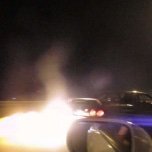Announcements
-
Similar Content
-
Latest Posts
-
Yeah, I presumed that the pic was of some other car, because of the F. Ikeya arms.
-
Did a little bit this afternoon and pulled the dump and turbo off so I could take the mani off to clean it up and give it a few coats of paint. Wire wheeled what I could get to and then got the sand paper out to get the tight spots. Gave it one coat so far, will do another two tomorrow and see if I can fit it in the oven to bake it for an hour along with the adapter and dbw. Hoping the exhaust wrap I ordered turns up soon so I can wrap the dump and screamer. Ordered 30M so I'll wrap back as far as I can to help a little with temp next to the box and also the floorpan.
-
Yeah I think overall I’m running the expected power I should be running for now and I’ll just enjoy it for the time being until I get some other parts. Thanks for the advice mate I appreciate it!
-
By Murray_Calavera · Posted
That's fair enough. Might be time to just enjoy what you have until you sort the ecu/flex sensor situation. You can pretty much guarantee that you are knock limited and e85 is going to be the solution to more power. -
He didn’t provide that info to me but I think I’m on standard timing. And no we don’t have e85 on the petrol stations here but it’s widely available here from shops. I’m just planning on getting a better ecu before switching to e85
-





Recommended Posts